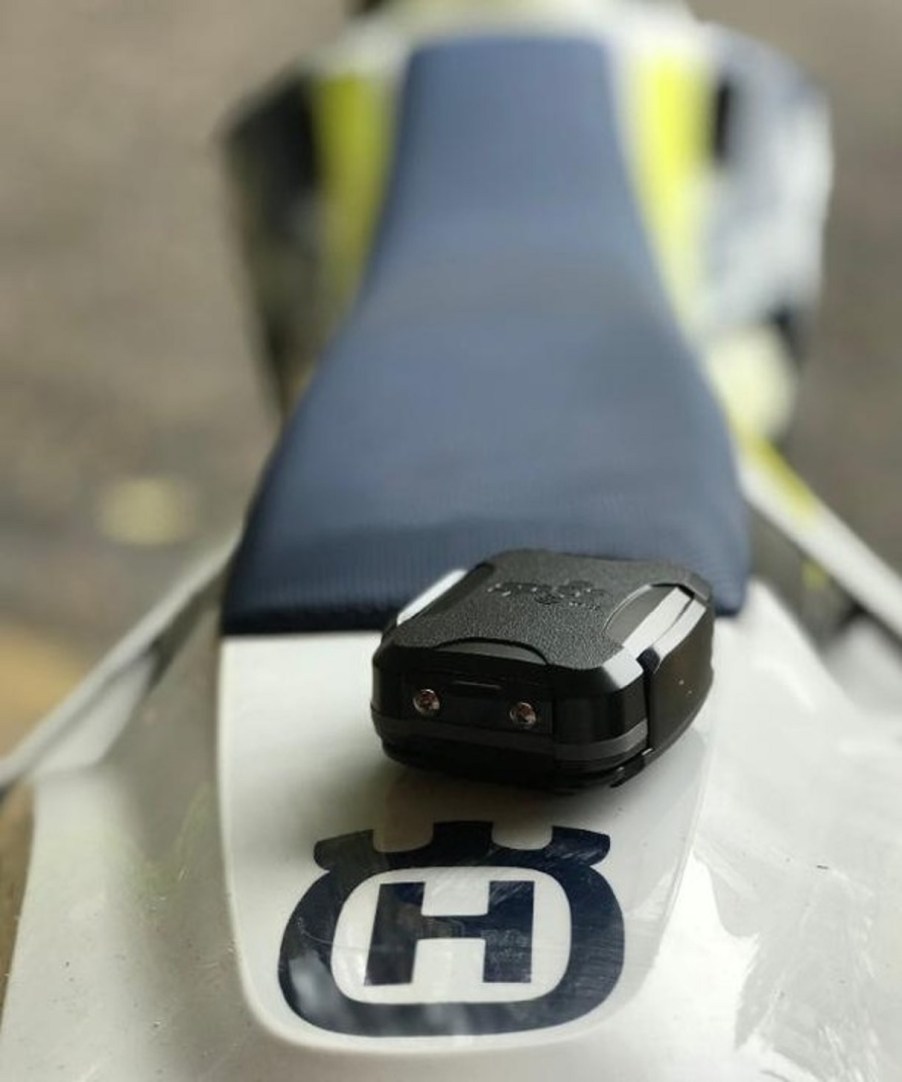
Keep Your Bike Safe With a Motorcycle GPS Tracker
You don’t have to spend six figures on a motorcycle to want to keep it safe from thieves. But not everyone has access to a locked garage, which is a great first step in preventing thefts. Brake disc locks are extremely beneficial especially if you leave the bike outdoors. But if they’re not attached properly, thieves can theoretically lift the motorcycle and take it. That’s where a motorcycle GPS tracker comes in handy.
Motorcycle trackers: GPS and beyond
Just like helmet communication systems, motorcycle trackers have gotten more advanced over the years. But at their core, they still rely on GPS signals to determine where your bike is.
However, not all GPS trackers use the same kind of signals, The Drive explains. Some rely on cellular-based networks, while others rely on satellites. The former type is typically cheaper but is tethered to their provider network’s range. These motorcycle trackers send and receive messages to communicate position. And just like you can’t text or call without bars, neither can cellular GPS trackers.
In contrast, satellite GPS trackers work on the same principle as the satellite phones many hikers and backpackers carry into the wilderness. Instead of a cellular tower, they communicate with satellites in space. However, this means they require stronger receivers, which means a higher price tag. Plus, while cellular GPS trackers do sometimes require a subscription fee for their SIM cards, satellite fees are even higher. And finally, they require a clear view of the sky to maintain good reception, Link Labs reports.
But as we previously said, motorcycle trackers don’t just log where your bike’s been anymore. Many now feature built-in accelerometers to automatically detect movement as well as alarms. And with Bluetooth and app functionality, they can link with your smartphone to provide additional features, RideApart reports. Or even link with other devices, Motorcyclist reports, such as TPMS-enabled valve caps. Also, the extra connectivity means some motorcycle trackers can remotely disable your bike in case it’s stolen, Revzilla reports.
Are there any other benefits to getting a motorcycle tracker?
Getting a motorcycle GPS tracker doesn’t just make it easier to find the bike in case of theft. It can also lower your motorcycle insurance premiums, The Drive, and Value Penguin report. Depending on your provider, you may need to have the tracker professionally installed to reap the full savings, though.
A motorcycle tracker can also provide peace of mind to your loved ones, Cycle World reports. Riding a bike is inherently more dangerous than driving a car. And while safety gear helps, being able to check an app and see you’re still riding can be reassuring.
Also, some motorcycle trackers are linked into your bike’s electronics. Meaning, they can monitor your battery and even remind you of service requirements.
Models worth checking out

There are several excellent motorcycle trackers worth looking into. One is the RLINK, which connects with the motorcycling app Rever, RideApart reports. In addition to cellular GPS tracking, it also lets you monitor your bike’s battery, and share your location with friends and family. The RLINK itself costs $260, and while Rever is free to download, there is a monthly subscription fee.

If you’re after something a little cheaper, Motorcyclist recommends the Spot Trace. It’s a satellite-based motorcycle tracker that retails at $50. It has a built-in vibration sensor, which sends you a text or email if it detects movement. And you can customize the frequency of its GPS updates. There is a subscription fee, though.
Cycle World also recommends the Scout motorcycle tracker. It’s a cellular GPS tracker with vibration sensors, Bluetooth, accelerometer, and magnetometer. Those last 2 components mean it can track movement and speed as well as position. And with the accompanying app, you can set ‘geo-fences’: if the Scout detects your bike leaving the fenced-in area, it sends an alert. It claims to work on any cellular network and retails at $100 plus a $15 monthly service fee.
Finally, RideApart had many great things to say about the Monimoto MM6 GPS tracker. It comes with both a tracker and a key fob. Just sync them with your phone, and the fob automatically disables the hidden tracker. If it detects movement without finding a synced key fob, the MM6 calls and sends an alert to the bike’s owner, and provides minute-to-minute updates. The MM6 motorcycle tracker system costs $229 and includes 2 free months of service. Every subsequent month carries a $3.50 service fee.
Follow more updates from MotorBiscuit on our Facebook page.


